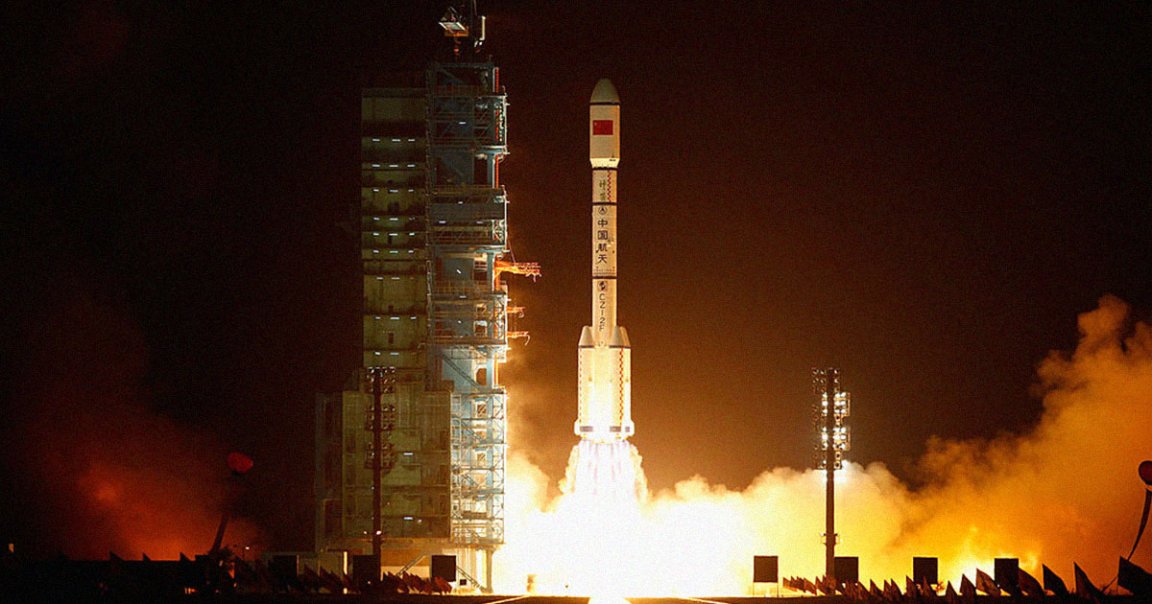
Chinese Starlink
China’s space program is getting ready to launch the first satellites of its own broadband-beaming mega constellation, SpaceNews reports, in an effort that could eventually rival SpaceX’s Starlink network.
The China Aerospace Science and Technology Corporation already revealed earlier this month that it intends to modify the upper stage of its Long March 5B rocket to release satellites in low-Earth orbit.
A modified rocket is already in the works and will launch in the second half of 2023 if everything goes according to plan, according to SpaceNews.
The goal is to eventually deploy a total of 13,000 satellites, a constellation dubbed “Guowang,” or national network, which could provide the country with an alternative to Western competitors, including offerings by SpaceX and Amazon.
Star Power
China has been ramping up the production of small satellites, per SpaceNews, a process that allows the production of hundreds of satellites each year.
“In the next few years, the Long March 5 series of rockets will be transferred to the high-density launch stage to meet the country’s needs for large-scale and rapid access to space,” Liu Bing, director of the general design department at the China Academy of Launch Vehicle Technology, told Chinese state news in November.
Officials say China is speeding up efforts to deploy its constellation “before the completion of Starlink,” as associate professor Xu Can with the People’s Liberation Army’s (PLA) Space Engineering University in Beijing, and his colleagues wrote in a recent letter, as quoted by The South China Morning last month. This would “ensure that our country has a place in low orbit and prevent the Starlink constellation from excessively pre-empting low-orbit resources.”
China has already been making use of its Long March 5B rocket platform to deliver a number of modules of its brand-new Tiangong space station into orbit.
Meanwhile, several other commercial launch companies are already offering to develop rockets capable of launching Guowang megaconstellation satellites.
If the country’s space program’s efforts prove successful, we could be looking at an inflection point for its commercial space industry. The network could give China a significant head start and perhaps even a militaristic advantage.
In fact, the country has already reacted with outrage over SpaceX allowing its Starlink satellites to be used by Ukraine’s military, with officials arguing they should have the capability to shoot down the Elon Musk-led company’s satellites.
More on China’s space program: China Found Something Fascinating in Glass Beads Strewn Across Moon